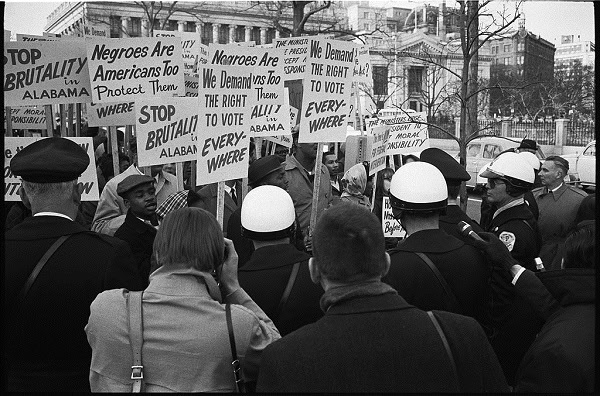The Federal Judicial Center is the education and research agency for the federal courts. At the end of 1988, Congress added a provision to the Center’s statute authorizing it to conduct, coordinate, and encourage programs relating to the history of the judicial branch of the U.S. government (28 U.S.C. 623 [a][7]). To implement this provision, the History Office is working with federal courts to develop reference tools to facilitate research about the federal judiciary and to improve the preservation of the record of the federal courts. In addition, like other federal history offices, the Federal Judicial History Office engages in oral history projects and responds to inquiries from court staff, scholars, and the public on matters relating to the history of the judicial branch. The History Office also looks for opportunities to work with allied organizations, like the American Society for Legal History and the Society for History in the Federal Government, as well as the Organization of American Historians, the American Historical Association, and the American Political Science Association.
Two major reference tools are in process; the first is a directory to the manuscripts of federal judges. The initial compilation will come from searching the indexes to the National Union Catalog of Manuscript Collections for the names of the some 2,600 federal judges appointed from 1789 to 1981. This research has so far located potential citations for 1,400 judges. In addition, repositories will be surveyed and on-line databases searched. A first edition of the directory is expected in 1992.
The History Office has also created a biographical database including information about federal judges appointed since 1789, based on a file created in 1981 to produce a printed biographical directory. The database will be updated to the present and then maintained as judges join the bench, forming the basis for a new published biographical directory. The information in the database is extensive, including occupations of parents and siblings, education, work experience before joining the federal bench, and political activity.
The History Office now has several oral history projects under way. First, the History Office is working with the Supreme Court Historical Society to do full interviews with the retired justices. The interviews will be transcribed and made available according to the instructions of each of the justices. In addition, the History Office will shortly be publishing a directory to some 900 oral history interviews related to the federal judiciary. The History Office also conducts a small interview project related to judicial administration. A preliminary edition of an oral history procedures manual, for use principally by the history programs in the district and circuit courts, has been distributed; a revision will be published next year.
The involvement of the History Office with the records of the court extends to both the official record and the private papers of federal judges. The National Archives holds the permanent records of the federal courts, which are retained in accordance with a schedule adopted in 1982. A joint committee of court personnel, historians, and archivists has been established to consider needed changes to this schedule. In addition, the History Office has undertaken a major initiative to promote preservation of judges’ chambers papers, which are considered to be their personal property. A memorandum on this subject was sent to all federal judges; next year, the History Office plans to distribute a detailed handbook to support this effort. To ensure preservation of judges’ papers, the Federal Judicial Center has authority to accept such collections in emergency situations.
To help the history programs in the courts communicate with each other, the History Office publishes an occasional newsletter called The Court Historian. The History Office also provides advice to those programs on locating scholars for writing projects, establishing history societies, mounting exhibits, and conducting public programs in their areas.
In April 1992, Emily Van Tassel, formerly adjunct professor of law at Georgetown University Law Center and associate editor with the Supreme Court Documentary History Project, joined the staff of the Federal Judicial History Office. was chief of the Federal Judicial History Office when the article was published in the print version of Perspectives. She is now associate professor of history and of women’s studies at the George Washington University.*
Details about the Federal Judicial History Office may be obtained from the web site of the Federal Judicial Center.
*Please note that this and the next paragraph replace text that appeared in the original, print version and now reflect information current as on September 21, 2010.

